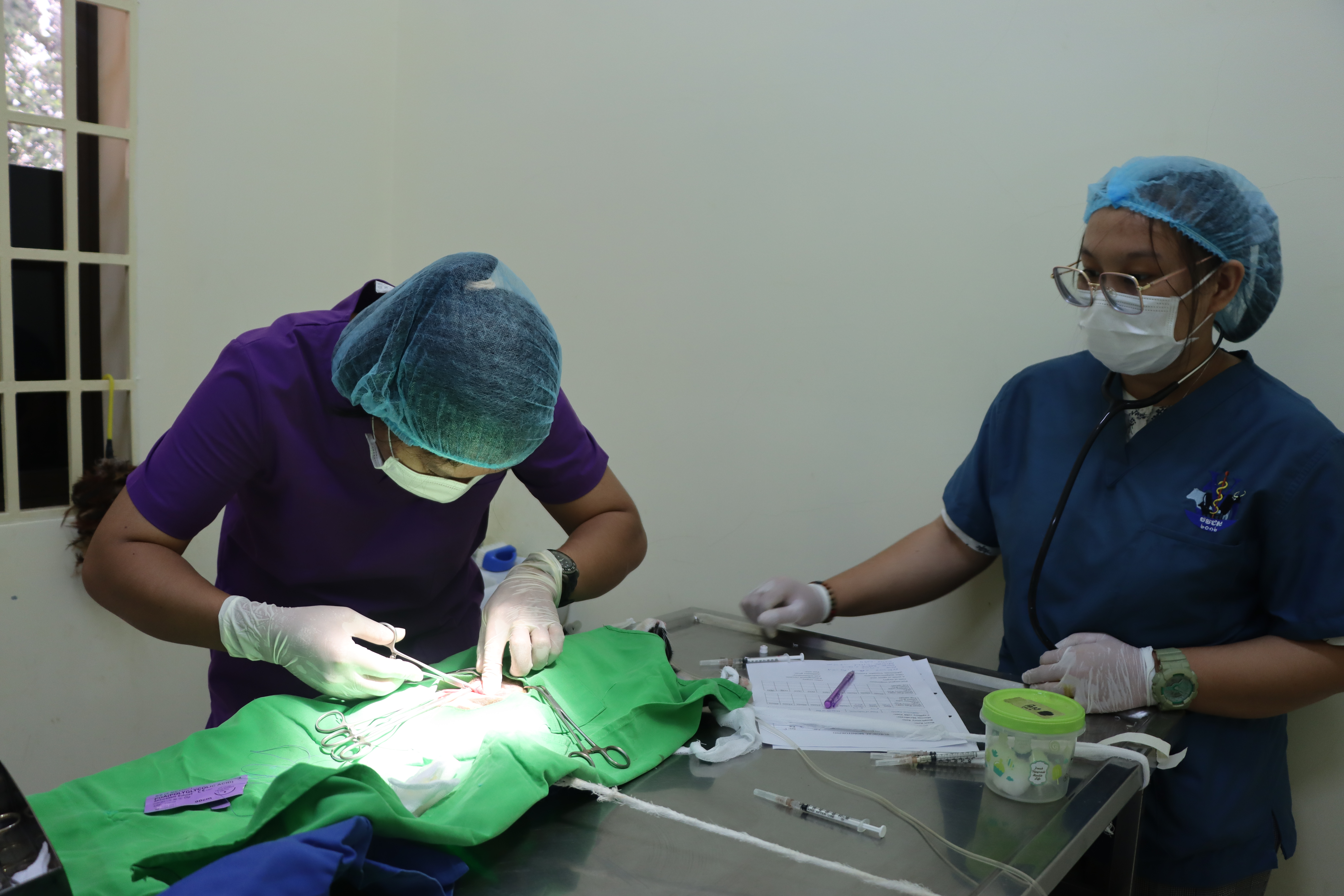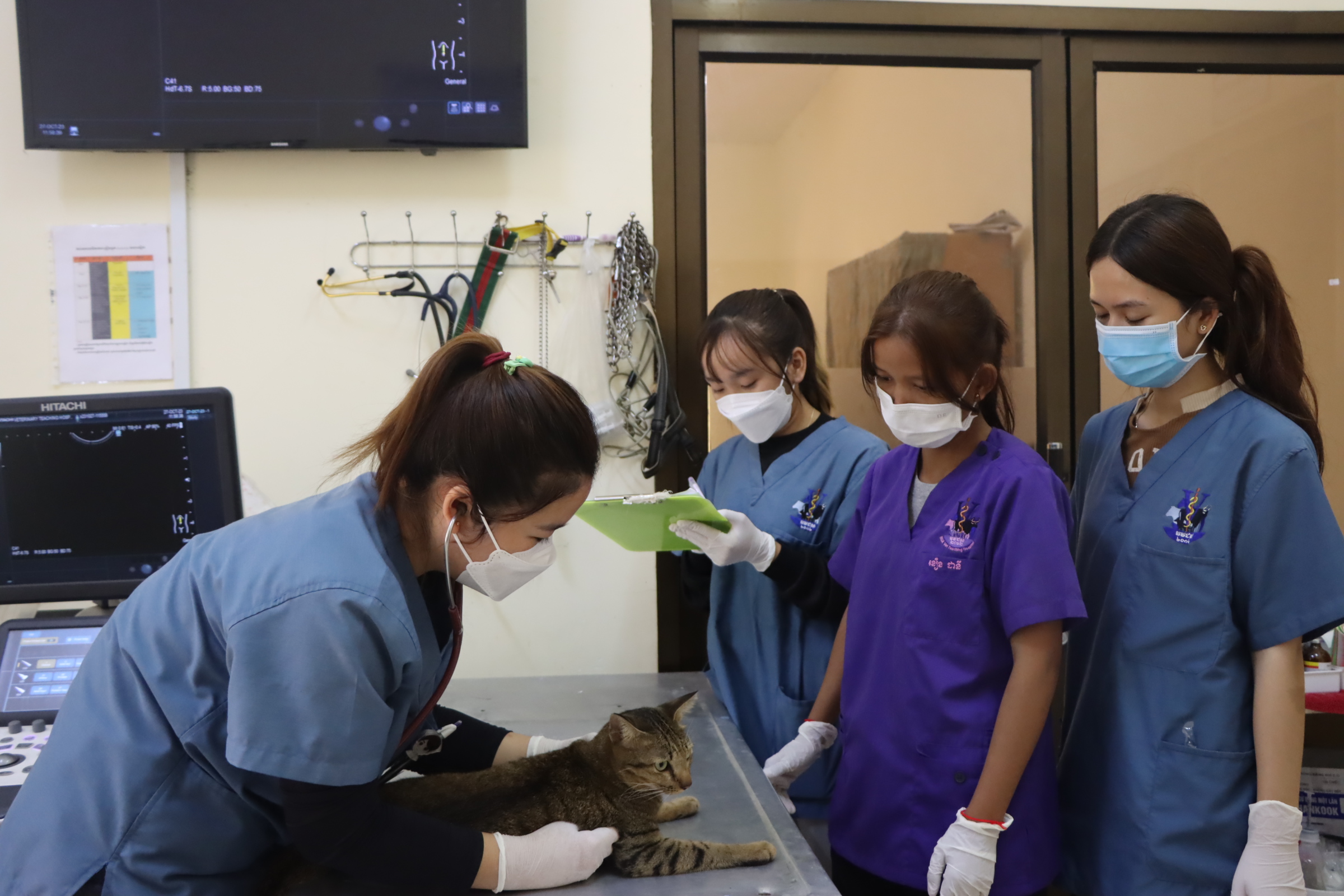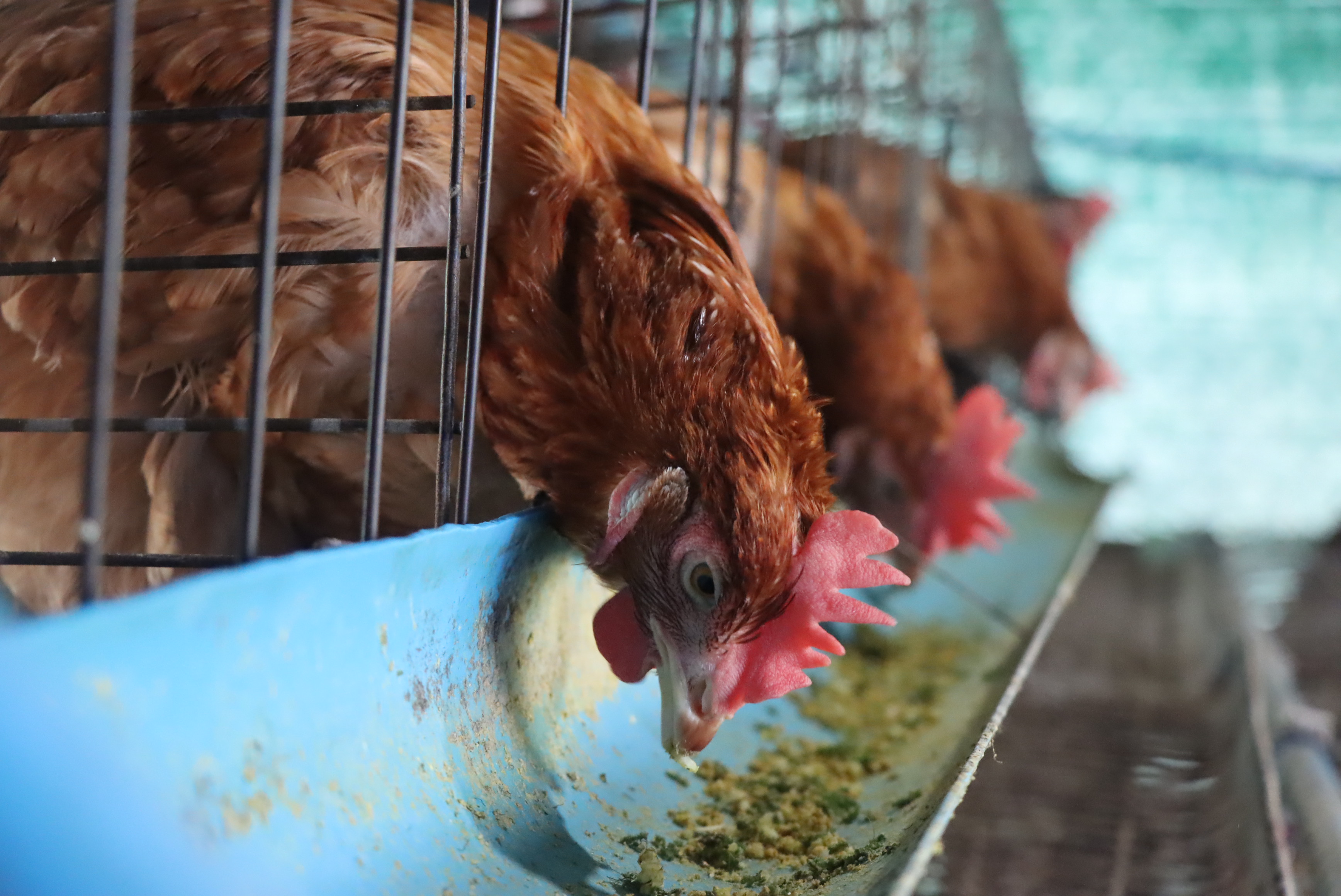1. Veterinary Physiology and Histology Laboratory: is dedicated to studying the functions and microscopic structures of animal tissues and organs. It supports research and education by analyzing physiological processes, cellular structures, and tissue pathology to enhance the understanding of animal health and disease. The laboratory plays a crucial role in veterinary medicine by contributing to diagnostics, biomedical research, and the development of new treatments.
2. Veterinary Microbiology Laboratory: specializes in the study of microorganisms that affect animal health, including bacteria, viruses and fungi. It focuses on disease diagnosis, antimicrobial resistance, vaccine development, and infection control. The laboratory plays a vital role in veterinary medicine by supporting research, diagnostics, and public health initiatives to prevent and manage infectious diseases in animals.
3. Veterinary Parasitology Laboratory: focuses on the study, diagnosis, and control of parasites affecting animals. It investigates the biology, life cycles, and impact of parasites, including protozoa, helminths, and arthropods. The laboratory plays a crucial role in disease prevention, treatment development, and public health by supporting research, diagnostics, and parasite management strategies in veterinary medicine.
4. Veterinary Pathology Laboratory: specializes in the study and diagnosis of animal diseases through the examination of tissues, organs, and bodily fluids. It plays a key role in identifying disease causes, understanding disease progression, and supporting veterinary clinical care and research. The laboratory contributes to animal health by providing critical insights into disease mechanisms, aiding in treatment decisions, and advancing scientific knowledge in veterinary pathology.
5. Veterinary Epidemiology Laboratory: focuses on the study of disease patterns, causes, and distribution in animal populations. It uses data analysis, statistical modeling, and surveillance techniques to understand the dynamics of infectious diseases and their impact on animal and public health. The laboratory plays a crucial role in disease prevention, control strategies, and policy development, contributing to the advancement of veterinary epidemiology and global health initiatives.
6. Veterinary Pharmacology Laboratory: specializes in the study of how drugs interact with animals' bodies, focusing on the effects, safety, and efficacy of medications. It conducts research on drug metabolism, pharmacokinetics, and therapeutic uses, ensuring safe and effective treatments for various animal species. The laboratory plays a key role in advancing veterinary medicine by supporting drug development, dosage recommendations, and improving clinical outcomes in animal healthcare.
7. Veterinary Molecular Biology Laboratory: focuses on the application of molecular techniques to study the genetic and biochemical mechanisms underlying animal health and disease. It conducts research on DNA/RNA analysis, gene expression, and pathogen genomics to enhance disease diagnosis, treatment, and prevention. The laboratory plays a pivotal role in advancing veterinary science by contributing to molecular diagnostics, vaccine development, and the understanding of genetic factors in animal diseases.
8. Veterinary Immunology Laboratory: focuses on studying the immune system in animals, including immune responses to infections, vaccines, and diseases. It conducts research on immune cell function, antibody production, and immunopathology to improve disease prevention and treatment strategies. The laboratory plays a crucial role in advancing veterinary medicine by developing vaccines, diagnostics, and therapies that enhance animal health and protect against infectious diseases.






 (855) 16 709 688
(855) 16 709 688 fvm@rua.edu.kh
fvm@rua.edu.kh